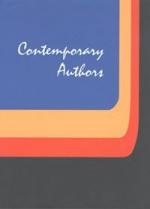|
This section contains 4,773 words (approx. 16 pages at 300 words per page) |

|
SOURCE: "The Negro in American Fiction," in PHYLON: The Atlanta University Review of Race and Culture, Vol. IV, No. 4, Winter, 1943, pp. 335-45.
In the following essay, Gloster profiles Griggs as a leader among those African-American novelists whose work challenged racial stereotypes portrayed in the writings of white Southerners such as Thomas Dixon.
During the period of disfranchisement Thomas Nelson Page and Thomas Dixon, Jr., were outstanding among those Southern writers who abetted anti-Negro legislative action by showing the black man to disadvantage before the American reading public. Page was preeminently the perpetuator of the plantation motif which had received emphasis before the Civil War in the works of such writers as John Pendleton Kennedy, W. A. Carruthers, John Eston Cooke, and James W. Hungerford. In the opinion of Page, the ante-bellum South enshrined the "sweetest, purest, and most beautiful civilization" the nation has ever known; and in such...
|
This section contains 4,773 words (approx. 16 pages at 300 words per page) |

|


